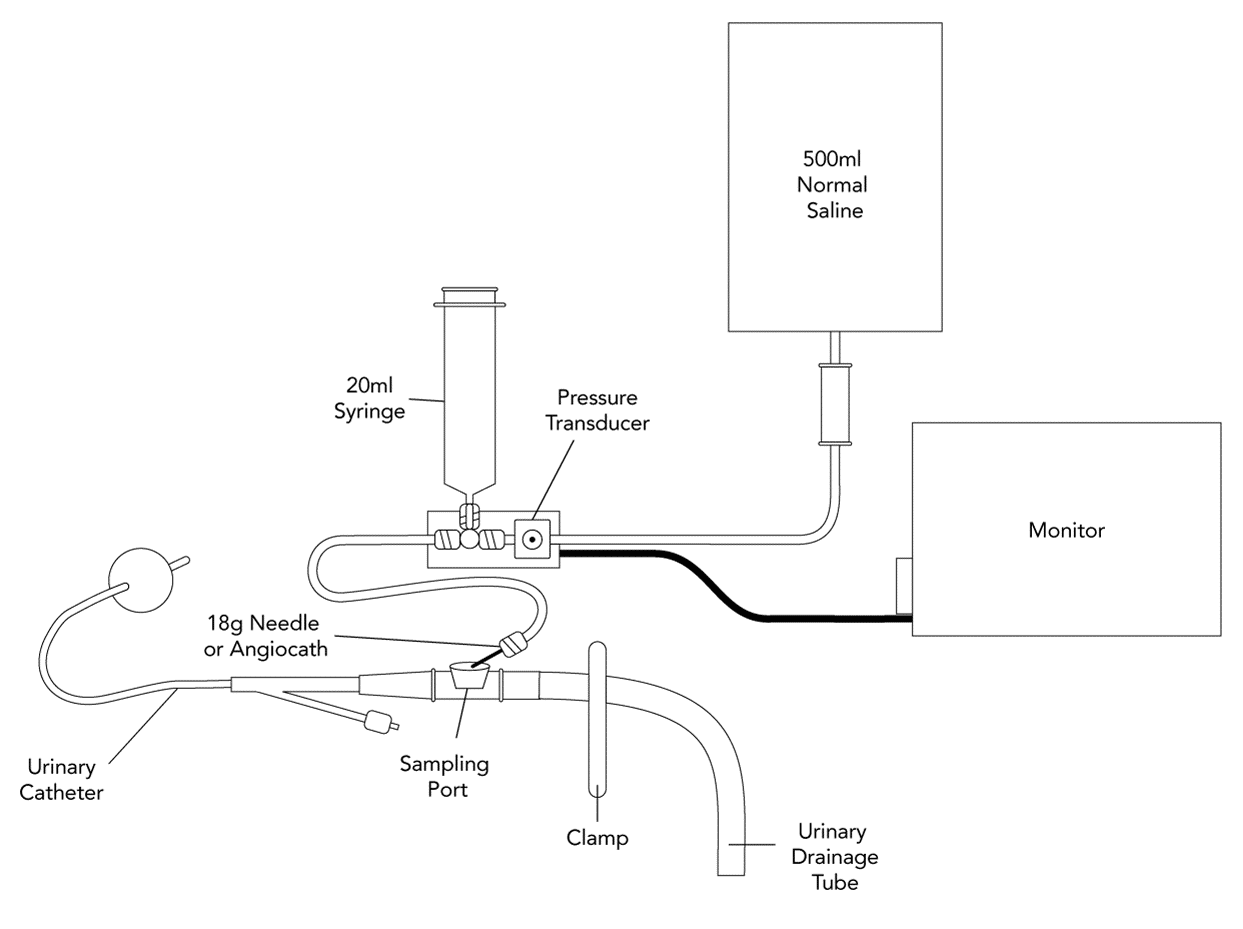- It is recommended that intravesicular pressure is measured via foley catheter
- The ‘Modified Kron’ method is the most popular method due to its simplicity and low cost:
- Patient should in the supine position 1 for measurement:
- If not clinically feasible:
- Recognize head elevation will result in a higher pressure
- Ensure all subsequent readings are taken in the same position.
- Adjust the height of the transducers and ensure it is zeroed level with the mid-axillary line
- Clamp the drainage tube to the urine bag 1
- Connect the needle to the rigid tubing of the pressure transducer 1
- Insert the needle into the sampling port of the catheter 1
- Fill the bladder with 1ml/kg (maximum 25mls) of 0.9% sodium chloride using the syringe 1
- Close the stopcock of the syringe and allow 30 seconds for equilibrium to occur 1
- Obtain the mean pressure reading upon end-expiration to minimize the effects of pulmonary pressures
- Fluctuations in the pressure waveform should be seen with pulsations in abdominal blood flow.

